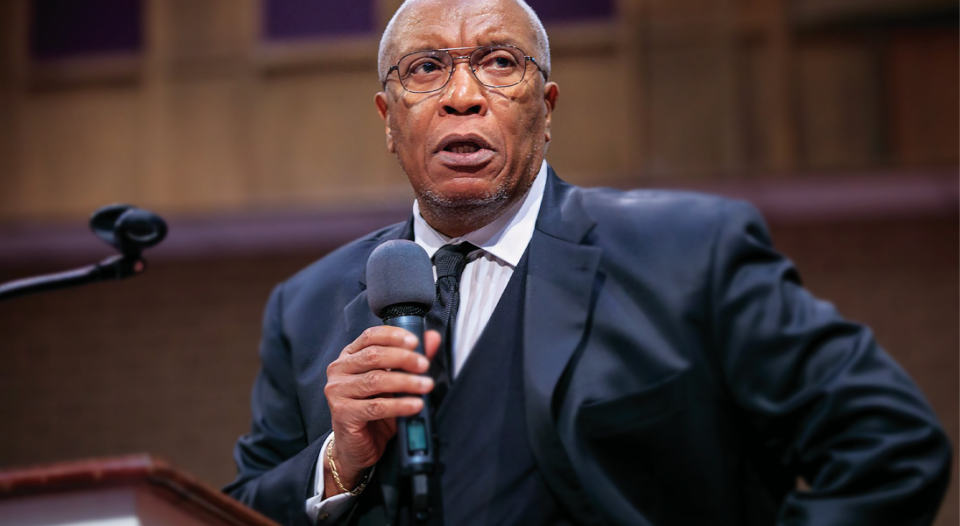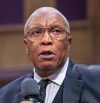Series editor’s note: Throughout 2021, “Deeper understandings” will continue to engage the ELCA’s commitment to authentic diversity. Vance Blackfox will carry on this theme next month. —Kathryn A. Kleinhans, dean of Trinity Lutheran Seminary at Capital University, Columbus, Ohio
What do I want this church to hear from an African American who has served the ELCA for 30 years as an ordained pastor? I’ve had a lot of years to think about such a question.
I was born in Mississippi in 1952, when Jim Crow segregation was still very much alive, and became acquainted with the Lutheran Church–Missouri Synod when I was 9 years old. I was baptized at age 10 at St. Paul Lutheran Church in Jackson, Miss., and confirmed at 14. Over the years, the intersection of Jim Crow and the church impacted me in ways I am just beginning to understand and accept.
Our membership was Black, but our pastor was white, and I don’t ever remember him directly addressing the injustice of segregation in a sermon. His congregants lived with this situation every day of their lives—but their church was silent. This silence confused me and made me wonder if our oppression was condoned by this white denomination I had joined.
Race and racism drove me to a crisis of faith even at that age, though I had no name for what I was feeling. The white churches in the South had acquiesced to the evil of Jim Crow. In my mind, they had sold their souls to the devil. Every day Southern Black Lutherans were reminded of how immoral the doctrine of “separate but equal” was, because we were not equal. Six days a week we were confronted with our separateness, and on Sunday our awareness of it became even more acute. I lived in this hostile system until I went away to college.
I spent four years studying at a school of the American Lutheran Church (a predecessor to the ELCA) in northern Minnesota. After graduating, I worked at a predominantly white congregation in Denver as director of education and young adult ministries. When I graduated from seminary in 1982, I believed that every student trained in our seminaries could serve anywhere in the church. That belief was shattered when I received a call from a white bishop who greeted me, “I hear that you are a good Black pastor.”
Now is the time to claim the power of that gospel and begin to live into it.
I was offended by his one-dimensional view of who I was and who I was supposed to be. He had pigeonholed me. I knew that I would be limited by his narrow view of who I was.
This white pigeonholing of who I am as a Black man in this country and as a Black pastor in the ELCA has persisted. It has limited my movement, my mobility and the kind of congregations I was offered. I would never be afforded the opportunity of having my name considered for call in a white congregation because, sadly, there would be other bishops who felt the same as the one who had greeted me over the phone. I believe that bishop was blinded by his racism, as are many who feel they must protect their white congregants—the clearest way for them to do so was never to submit my name to those congregations.
After a while, you learn to overlook some things—the little slights, the harmful words, the constant questioning of your credentials and qualifications. All these things were a resistance to my Blackness—a resistance, ultimately, to my very humanity—which I could never forget nor would ever choose to forget.
Hear the brutal pain of that: the sheer violence of being in a white space that, at some real level, was hostile to my Black body and continues to be hostile to my Black body. This makes me wonder, even now, if this is a church I can trust to not only affirm my humanity but invest in it. Is this a church I can trust to keep me safe?
Know that what I write here is not coming from an angry and bitter Black man, though that is how some will characterize my honesty. Do I love this church? Yes. But love does not ignore truth or gloss over it. The apostle Paul says that love “rejoices in the truth” (1 Corinthians 13:6).
For a long time I’ve been struggling with this church in which I’ve spent well over half my life, sitting at various tables and talking about racial justice and racial reconciliation only to end up disappointed with the meager movement and outcomes.
“Little by little” and “the church is trying” are no longer acceptable answers for me.
If the gospel means anything at all in this critical period, when we are divided as a nation and a church by the demonic forces of white supremacy and racism, now is the time to claim the power of that gospel and begin to live into it.




